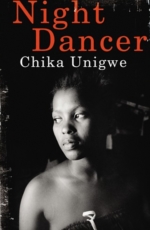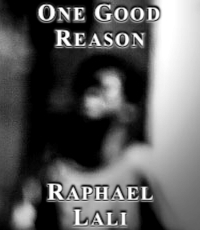Kakoon by Nyambura Kiarie
 The earliest memory she had of herself as a separate being, was when she was three years old. She knew then that she was a she and belonged to someone, multiple someone’s, and yet she was not them. She liked it; this place of self knowing that was hers alone, and in it she could be anything, concrete or amorphous. She knew this knowing of self and it was enough. It was important because it allowed her to be separate from her three siblings. Without it she would surely be swallowed up and forgotten by her siblings, who exploded into her horizon in different dimensions all at once; this secret knowing was entirely hers. She looked up at them perched on incredibly long legs, knobby knees and skinny frames. She was round and chubby and she was used to Mum, who was rounded and soft, and Dad, who was rounded and strong. This roundness was comforting, a familiar habitat when they held her.
The earliest memory she had of herself as a separate being, was when she was three years old. She knew then that she was a she and belonged to someone, multiple someone’s, and yet she was not them. She liked it; this place of self knowing that was hers alone, and in it she could be anything, concrete or amorphous. She knew this knowing of self and it was enough. It was important because it allowed her to be separate from her three siblings. Without it she would surely be swallowed up and forgotten by her siblings, who exploded into her horizon in different dimensions all at once; this secret knowing was entirely hers. She looked up at them perched on incredibly long legs, knobby knees and skinny frames. She was round and chubby and she was used to Mum, who was rounded and soft, and Dad, who was rounded and strong. This roundness was comforting, a familiar habitat when they held her.
Her siblings were aliens from another planet, loud, boisterous, always scheming about something or other. In their presence her heart beat faster and she always felt breathless trying to keep out of harm’s way. She had no words for this self knowing, but it was there as a part of her existence. All of her three years, her siblings ignored her, and to show that it was she who was alien and intruded upon their world, they called her It. She had a name of course, and was named after a saint, but only Mum and Dad called her by this name. The fact that her siblings ignored the blessed name of a saint, made her think less of the saint and that name, and she came to believe that It was more representative of who she was.
It did not help that she had a funny way of speaking. Her siblings called these speech mannerisms ‘shrubbing’, and they were remorseless in teasing her because of it. She tended to mispronounce words or invent her own that sounded close to what she wanted to say. Mum and Dad just shrugged it off as baby talk that would wear off as she gained more fluency.
She was four on her first day at kindergarten. Dad proudly held her hand and walked her into class. He didn’t leave until she sat in a little yellow chair among other small beings like her, all sitting on red, green, blue, and pink, chairs. She trembled when Dad left, but was soon distracted by the smell of new paint, plasticine, and cocoa. Better still she liked all the colours in the classroom. She felt all warmed up inside when the teacher said to them, “Today we will begin our lesson by learning letters to make words. Words are good, they can say how we feel.” This teacher was wonderful. She was round like her mother and she had clear eyes that sparkled with kindness. She made her feel safe unlike the saint her parents chose for her with the blessing of the church. She never understood that saint no matter how often her mother told and re-told her stories of virtue. She smiled. She was happy and she liked school.
School brought it with it the challenges of learning to read, write, and make new friends. The latter she found as difficult as with her siblings. Her small playmates teased her about the way she spoke and playtime often ended in tears. She began to dread going to school and her parents and teacher became very concerned. She felt a whole lot of frustration, anger, and fear, which she bottled up inside. And when she tried to express these feelings, the words came out funny, she was teased so much for it that the teacher made her sit next to her, which was humiliating. It got so that she was afraid to speak at all.
Her teacher realised that her speech difficulties were not because she was a slow learner but because she had an Articulation Disorder. She did not understand what was going on and she was rather frightened when Mum and Dad took her to a doctor. The doctor examined her ears with a strange metal thing, made her open her mouth wide and poked around a bit with a spatula. “I need to run some more tests,” the doctor said to Mum and Dad. “Then I will be able to confirm if she has any degree of hearing loss. In the meantime I suggest that you put her in a special school, or a school with a programme that can address her learning needs.” Mum and Dad nodded numbly, a bit overwhelmed, and it was a quiet journey back home.
Dad managed to get her into a special school but it was not a day of joy like the first time. This school was quite different, the teachers sat on colourful mats with their students in small groups and each group had its own activity. Looking at the new school and new faces made her feel afraid; she sobbed, and held tightly to Dad’s hand.
Her new school was very different from her previous one. To start with none of the other children in her group poked fun at her. In the classroom all of them sat together on the floor very close to each other and their teacher. The teacher spoke to each one of them in turn. Each time the teacher spoke to her she looked straight into her eyes and held her gaze and when she was nervous or looked away, the teacher held her hand and made her look right back at her face. This routine was repeated until it became second nature to listen to the teacher while focused on her face and watching her lips and the way she shaped her words. Sitting close together was comforting and when the teacher held her hand she felt calmer and less afraid to articulate words. Soon she settled comfortably into the learning routines and she began to enjoy her new school.
She was four years and six months old when the most amazing thing happened. The letters became words and she could string them together with ease to say what she felt. For four years she had felt a whole lot but now she could truly express herself and be understood, which gave her great confidence and began to dispel the mystery that was her siblings.
Her siblings were astonished. She did not like being an It and she said so and they marvelled. Then they did what they had always done since the day she came home wrapped in a colourful shawl, with Mum and Dad beaming smugly and preening fit to shame a peacock, they ignored her. She raged silently, blowing out her cheeks as far as they would go. They pretended she was invisible.
Later that day, Dad came home from work as usual and picked his youngest child up and swirled her round and round and then sat in his favourite armchair and perched her on his knee. He smiled at her, she smiled back.
“Daddy”, she said, “your sons have been very naughty boys”.
“Have they?” asked Dad, smiling indulgently.
“Yes”, she replied. “Daddy, you said no children of yours were to open their mouths to say bad names. Your sons said bad, bad names the whole afternoon.”
She stretched up pulled on Dad’s collar to get his ear closer and she whispered, “Fuck off bloody idiots,” in it.
Dad was utterly consternated and belatedly tried to cover her ears, beyond the power of speech he put her down and stood up with some force. “Boys”, he bellowed, his voice thundering through the entire house.
They came in running and looked anxiously at their irate Dad.
“What in God’s name is the meaning of this? My boys swearing fit to shame the devil? If anyone of you dare to tell a lie then your sin is twofold. Speak at once,” he commanded.
The boys trembled and hung low their mortified faces. Finally it was the Meshack who spoke up; he being unable to abide any trouble and his entire existence to date having given him plenty practice in the art of extricating himself from any entanglement with trouble, most especially his father’s trouble. “Dad,” he piped up. “We were merely repeating what the old man says when he has to sweep up the compound and cut the grass on the lawn.”
“Yes”, Shadrack picked up effortlessly from where his sibling left off and with a budding confidence began to spin and weave a tale. “We said to ourselves, surely an old man is foolproof, he has enough experience to outwit the devil. He cannot lie and he cannot mislead us. We are like grandsons to him, are we not Dad? We did not intend to do wrong. You can ask him yourself”, he finished with convincing innocence.
Check and checkmate! Dad was practiced enough in parenthood to know when he had been outwitted and outmatched, graciously he conceded the battle lost, but he was a general who intended to win the war. “Boys, I have this to say on this subject. For every bad word you allow your lips to utter you shall write down five new words plus their meaning, and boys, they had better be words of virtue,” he pronounced in a deceptively quiet tone. Having said so Dad retreated to the safety of the living room and pored through the newspaper, a sure sign that he was not to be disturbed unless someone was dying.
The boys stood in a huddled group, taking stock of their victory and finding to their dismay that victory came with a heavy price. Then they looked at the little tattler speculatively and wisely decided that at the moment she was untouchable and they would have to go back to the drawing board and factor her in from now on. It was gulling indeed for three boys to be cornered by an itsy bitsy spider called It.
She had not lived four years in this house for nothing. She knew when silence was not only a concession but an insurance of safety. The next day however brought home with brutal impact a new lesson. Every action must have a consequence. She found her consequence lying on the kitchen table with a nose bit off and both ears chewed to a pink pulp of plastic. Her pretty doll was grievously assaulted and on its forehead it had a big capital tee printed with a black marker. She let off a loud wail. Truly her heart was broken that day. She wept inconsolably and the boys who had not factored such an ungentlemanly reaction were unmanned by her tears.
They looked askance at each other.
“Awww, stop crying, it is only a dolly and it can’t feel any pain,’ said Abednego, which was ignored.
The crying continued unabated and the three no longer felt like Giganto getting paid his dues. She looked so tiny huddled on the floor, leaning against a leg of the kitchen table and clutching her dolly tightly to her heaving chest. She just looked like a little girl not an opponent and that little girl was their sister. They felt bad and they did not like feeling bad, not to mention that if their parents found her like this there would be a lot of trouble. They had to do something, some fancy footwork and some fast thinking.
“I have an idea,” Shadrack said. He pulled his brothers close and whispered furiously in their ears. The other two listened avidly and their faces lit up with excitement. They commanded the little heartbroken tattler to sit still, in truth she did not feel like she could move an inch anyway.
The trio re-entered the kitchen with great drama. Abednego was draped in bed sheets in what was intended to be priestly apparel and he carried the heavy black family bible with a golden cover title. Meshack carried Mum’s crystal flower vase half full of water and a towel. Shadrack went straight to the tattler, picked her up and washed her face in the kitchen sink and held a tissue gingerly to her nose and commanded her to blow. She noisily obliged. Then he made her stand on a chair so she was as tall as they were, well, almost. The eldest stood before the chair facing her with a solemn expression and the other two stood on either side of her.
“Brothers and Sister,” Abednego intoned. “We are gathered here today for a very important reason, to bring the sacrament of baptism to one of our own and give her one of the keys to heaven, with this baptism she becomes as we are and she is bound to us by blood and water”.
“Say Amen,” he commanded imperiously after a pause.
“Amen”, the dutiful twosome chorused.
The little convert stood on the chair, at first she could not comprehend what was going on, but slowly she felt caught up in the spirit of the baptising trio and a sense of importance timidly crept into her very being. She stood up straighter and her heart was wide open to the miracle of believing. Her thoughts were jolted back to the moment when Meshack who had the crystal vase, stood before her and poured cold water over her head.
Abednego intoned, “In the name of the father, the son and the holy ghost, we pronounce you baptised. From this day forward you shall be known as Kakoon. Amen.”
The three boys then solemnly filed past her and each hooked a little finger with her even littler one and sealed the baptism officially in the custom that boys understood. Meshack took her down from the chair and all three smiled at her.
“Hey Kakoon,” said Abednego. “You had better help us get this things back to their proper places before Mum and Dad see.”
The newly baptised one could not believe her good fortune. She felt even happier than she imagined a princess could feel. Her life had changed, in those brief moments and she too was finally a princess with a kingdom, with three princes and a king and a queen. The children scuttled from the kitchen to make the bed that had surrendered its sheets and to put the bible back on its throne in the top most shelf of the living room.
Gone were the tears, gone was the constant ache of a lonely heart. Who would have thought it so, that a name could well be a crown, a home, a friend, and an entire book of song, that would be the unveiling of a little soul?
Kakoon was written by Nyambura Kiarie.
Copyright © Nyambura Kiarie 2011.
 All her life Kenyan born Nyambura Kiarie, has had a passion for the written word and the telling of stories. She believes that life is a story just waiting to be told. Struggling with Lupus for most of her life, she is a spirited advocate for Lupus and writing has been for her a powerful catharsis. Words give her wings to fly, to scale the heights and they are the footsteps to her dreams and to God.
All her life Kenyan born Nyambura Kiarie, has had a passion for the written word and the telling of stories. She believes that life is a story just waiting to be told. Struggling with Lupus for most of her life, she is a spirited advocate for Lupus and writing has been for her a powerful catharsis. Words give her wings to fly, to scale the heights and they are the footsteps to her dreams and to God.


















1 comments:
Beautiful Story.....I love it!
Transition...excellent!!!
Post a Comment